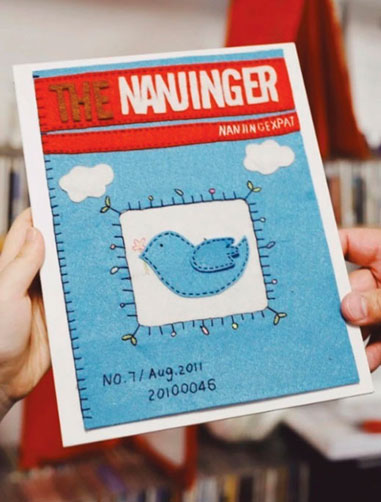At the core of every culture, within their respective holidays and customs lie an almost inherent tradition of gift-exchange.
From striped-ribbon boxes that sleep under a tree, to envelopes that don a rich red hue, the idea of “gifts” has manifested itself across nearly every nation and culture, simultaneously embedding itself at the heart of many of the world’s most celebrated holidays.
As expected of such a generalised tradition, when it comes to the art of gift exchange, certain practices and habits exist that differ from culture to culture, prompting many to feel the urge to uphold these traditions, especially in regard to Chinese culture.
Who, after all, would want to come off as that one uneducated 老外 (lao wai; foreigner)?
And while worries of, “What to give”, or, “How to give it”, are often the burning questions when it comes to an intercultural gift-exchange, a crucial question that is far too-commonly disregarded is what to do when you’re the one who actually receives a gift.
I was raised by my loving, yet tiger-like parents, who come from a traditional Chinese background. When paired with growing up in liberal America, this definitely led to a lot of confusion regarding social behaviour.
At a young age, I was taught that if I ever received a gift, I should initially reject it at all costs and allow the giver to coerce me into accepting the gift; sort of like saying the common, “Oh no, you shouldn’t have”, but in much more intense manner.
While most children learn to do this through their parents verbally instilling the habit as would a drill sergeant, I didn’t receive the pleasure.
Upon a visit from grandparents, I naively snatched a red envelope away from their hands, without even the slightest attempt at refusing it, and carelessly waltzed back to my room to count the money.
I didn’t think much of it at first, but when I heard my door swing open with a thud, I looked behind me and realised I had done something wrong. My father sat me down and sternly explained to me how my actions made my grandparents feel, in a performance of classic, grade-A guilt-tripping.
Needless to say, being an impressionable young child at the time, it worked, and that gut-wrenching feeling has stuck with me since.
I later discovered that the reason for the emphasis put on this seemingly arbitrary custom is because in Chinese culture, it is a form of respect to initially reject a gift, as in doing so, you are expressing that the giver has done something for you solely out of their own kindness and not out of any pre-existing duty.
The harder you fight back, the more you care.
Continuing to do this throughout my childhood (after my re-education), to my Chinese relatives, I seemed like a perfect, well-behaved angel child, using my limited vocabulary to announce that I didn’t want the gift, but implying that I did and was only denying it out of cultural duty.
To my western-cultured friends however, after initially rejecting the birthday presents given to me for my 10th birthday, all my friends seemed more confused than humbled. Worse, a few of them were even insulted because they took the time to hand-pick a present for me that I had just denied.
Before this point, I had never considered that there were cultural differences in the way gifts were received, I just thought that was how everyone did it. Growing up in a third culture was proving harder than I thought.
I’ve always had a theory that the Trojan Horse from ancient Greek legend would never have worked in a battle against ancient China. Rather than the strategy succeeding wondrously, I’ve always had this vision that the plan would pathetically fail in the face of the Great Wall.
“Great China, I acknowledge that we’ve had our differences, but I think it’s time that we moved on. Have this great wooden horse as token of our sincerity”, exclaims the Greek Commander.
“Oh noooo, you shouldn’t have, you Greeks are too kind”, General Sun regretfully responds. “This is far too much.”
“No no we insist, you must accept our gift, for it is a symbol of our honour”, reassures the Greek Commander with nervous laughter.
“We graciously accept your honour, but we ABSOLUTELY CANNOT accept this gift”, General Sun once again restates as he performs a 45-degree bow.
“Please open your gates and allow us to wheel the horse in, it’s the least we can do”, pleads the now-desperate Commander for one last try.
But General Sun stood unshaken from his bowed posture. Helen of Troy wanted to scream.
And as the soldiers in the horse begin to grow weary and hungry, the Greeks firmly hightail their silver-plated leggings all the way back to Greece in resignation. Although China probably would have accepted the gift eventually, the Greeks would’ve never stuck around long enough to find out, much like my insulted 10-year-old birthday guests.
Understanding this hypothetical scenario of the Trojan horse leads to an understanding of the different gift-receiving mindsets between East and West.
While in western culture, gift exchanges pride themselves on the act of openly reacting to the gift given with some type of exaggerated positive emotion to show appreciation, in the East, ironically, the best way to show appreciation is to not initially show any at all. The keyword here is “initially”, since in the end, you still want to accept the gift and eventually return the favour with a gift of your own, resetting the cycle of giving.
It’s worth noting, however, that the gift is not actually what’s important in the exchange. It itself merely acts as a device for a physical expression of gratitude, where both giver and receiver have to make a worthwhile effort.
This holds true for both gift exchanges in eastern and western cultures, even if some of the practices are seemingly in polar opposition.
So, the next time you receive a gift from a co-worker or friend local to China, try to deny the gift at first.
Be the respectful General Sun.
In doing so, you may be able to not only connect with a friend on a more personal level, but also transcend a cultural barrier that acts as a cloud shrouding one of the most widespread traditions in the world.











